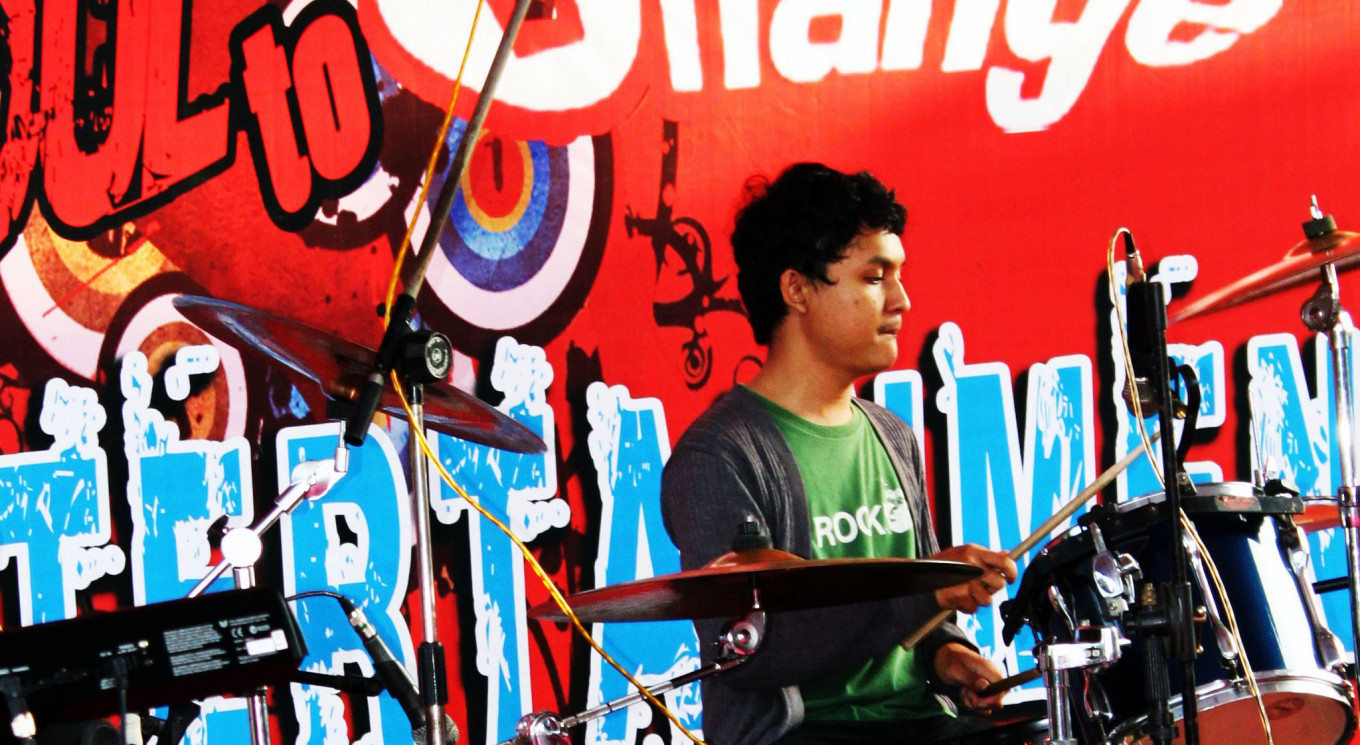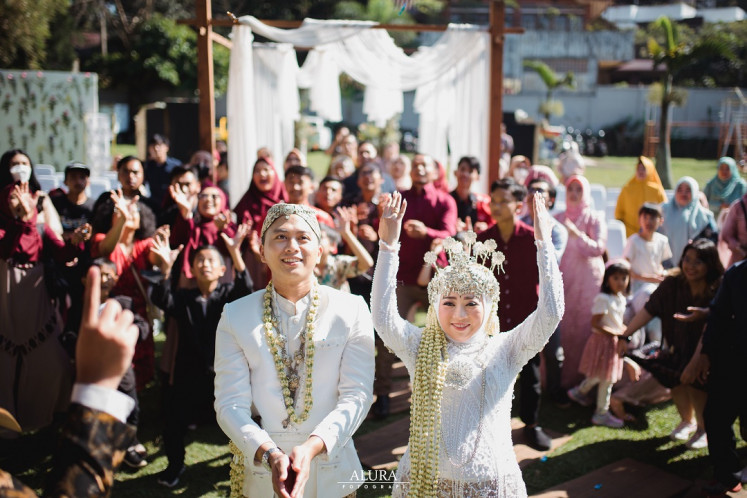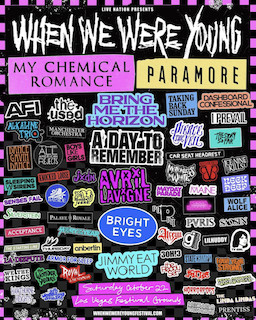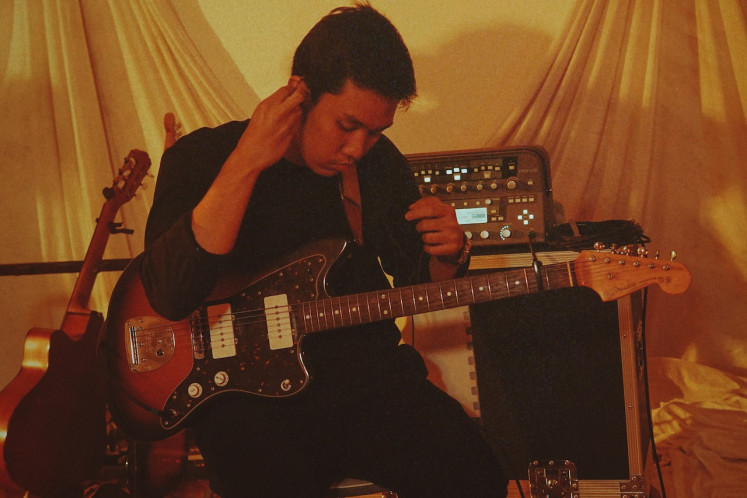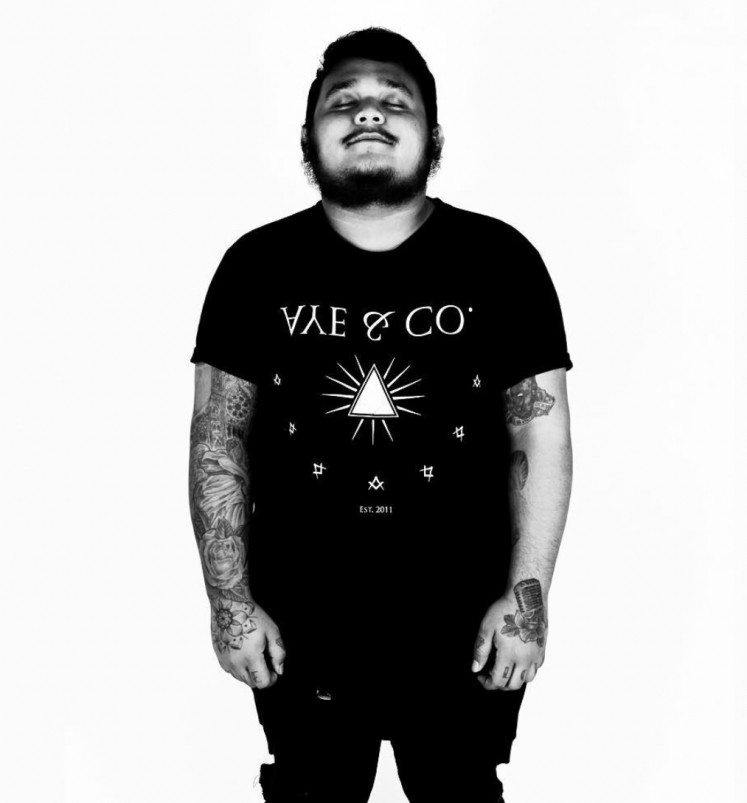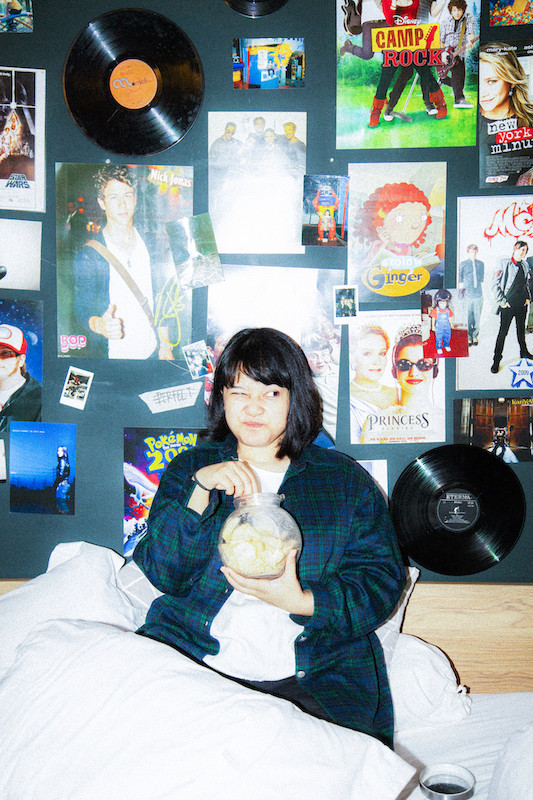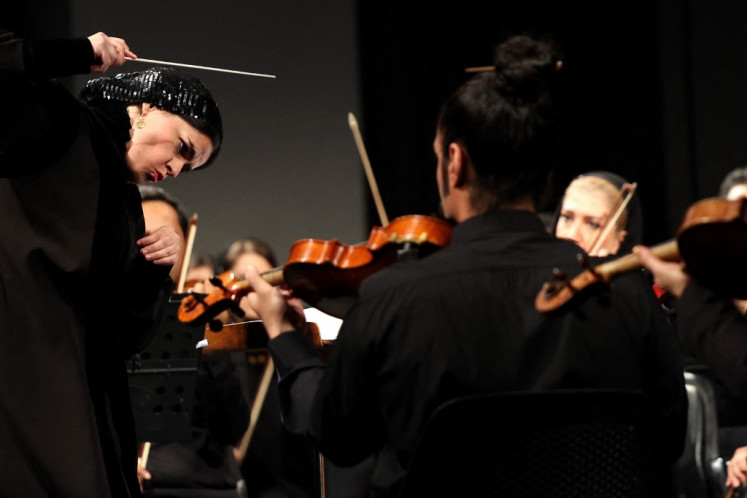Popular Reads
Top Results
Can't find what you're looking for?
View all search resultsPopular Reads
Top Results
Can't find what you're looking for?
View all search resultsEmo-tional memories: How a popular 2000s music genre shaped millennials
Gut-wrenching love affairs and embarrassing hairstyles. Millennials who grew up in the 2000s weighed in on how their teenage "emo" years influenced their adulthood.
Change text size
Gift Premium Articles
to Anyone
G
ut-wrenching love affairs and embarrassing hairstyles. Millennials who grew up in the 2000s weighed in on how their teenage 'emo' years influenced their adulthood.
The internet was set ablaze when concert promoter Live Nation announced last week that once-culturally influential "emo" — short for "emotional" — acts such as My Chemical Romance, Paramore, Avril Lavigne and Bring Me the Horizon will headline When We Were Young Fest in Las Vegas, Nevada, the United States, in October. It did not take long for Indonesian emo music enthusiasts to put their own spin on the event. One fan-made meme, for instance, replaced the acts with Indonesia's 2000-era icons, such as Radja, Vagetoz and Kangen Band.
JOOX Indonesia content editor Mohammad Zaki said the buzz around the When We Were Young Fest could lead to a widespread emo revival.
"When October comes and these major emo players reunite on a stage together, it is not impossible that they may shake up the whole music industry. The answer shall be revealed later. But now? Not yet," he said.
Revival: A promotional poster for When We Were Young Fest, set to take place in Las Vegas, Nevada, the United States in October. (Instagram/Courtesy of @whenwewereyoungfest) (Instagram/Courtesy of @whenwewereyoungfest)How does one define emo? Wisnu Ikhsantama W, a former "emo kid" who is now known for his work with indie-pop bands Glaskaca and Lomba Sihir, offered his own definition. One thing is for sure: It is not just about the stereotypical rose tattoos or ripped skinny jeans.
"Emo is about emotion," the 27-year-old musician said. "Lyrically, emo is straightforward and revolves around sadness. It is quite nihilistic, really."
While it is impossible to sum up emo music without going deep into its history, most agree that its first incarnation came in the mid-1980s when hardcore punk bands from the US, notably Washington DC, grew tired of the macho posturing of their scene and began singing about their personal plights, often performing concerts in tears. This happened during what is dubbed the “revolution summer” in 1985.
Though that music never grew beyond the underground, bands inspired by that movement — though playing music that was decidedly more melodic and outwardly dramatic — popped up in the mid-late 1990s, mostly in the US midwest, before slowly blossoming into a more-mainstream form of emo with a more confined set of sounds and fashion. The latter is what the latest wave of nostalgia celebrates.
Dramatic emotions might be the key to explaining why Indonesian youths immediately jumped on the emo bandwagon during the 2000s. Considering the country's social and political climate in the post-New Order regime, Wisnu surmised that Indonesians at the time were in a state of "collective heartbreak".
"I think back then, the whole world felt like that era was the most heartbreaking one. Just like the era we are in right now," he said, alluding to the COVID-19 pandemic.
The kids from yesterday
Zaki, now a 31-year-old father of one, still remembers very clearly the time he joined that emo bandwagon.
"When I was in high school, emo was part of a lifestyle," he recalled. "All the music that I used to listen to was emo music, but punk music was what had ushered in that culture."
Zaki pointed to Avril Lavigne as an example — an artist he deemed "punk-oriented in her first two albums before going emo on the third one".
A big fan of hers as a teen, he professed how Avril's transition from punk to emo persuaded him to join the other side as well.
"Usually, when an artist pivots or switches genre, their fans would either follow their cue or leave. As for me, well, I followed," he continued.
Style-wise, Zaki claimed his love for emo as a teen did not necessarily mean "wearing all black" on a daily basis; though he did, at one point, adopt the long fringe hairstyle akin to young Benji Madden of the pop-punk/emo band Good Charlotte.
"I no longer have the pictures!" he said, laughing.
Wisnu, on the other hand, was all about hard rock-leaning emo bands such as From First to Last and Bullet for My Valentine.
"I remember back in middle school when I broke up with someone, my Facebook wall would be packed with the lyrics of either From First to Last or Bullet for My Valentine," he chuckled.
His exposure to 2000-era emo subculture soon became a driving force when he began producing for an emerging local emo band called PVLETTE. The band's vocalist, Christo Julivan, was particularly a fan of screamo: an emo derivation that emphasizes screaming in the vocal delivery.
According to Christo, the strong appeal of emo music lay in its unmistakable "expressiveness".
Scream: Emo band PVLETTE's vocalist Christo Julivan draws inspiration from the screamo subgenre of emo music. (Photo Courtesy of Christo Julivan) (Personal Collection/Courtesy of Christo Julivan)"I think emo music is more 'true', and the feelings that it conveys are more raw," said the 26-year-old singer. "Perhaps most people see this genre as farcical, but I find it more authentic compared to the other genres."
Thank you for the venom
Things were slightly different for Eky Rizkani. While Zaki, Wisnu and Christo found emo music as adolescents, it was merely a few years ago when Eky was first introduced to the world of emo — to be precise, when he first listened to music by midwestern emo band American Football on Spotify.
It was not exactly love at first sound.
"Lyrically, their music was emotional. Very romantic and very emo-like. But initially, I was not immediately hooked. I found their vocals were very dry," the now-23-year-old recalled.
Over time, Eky came to realize how "forward-thinking" emo acts such as American Football could be.
"It dawned on me that bands like American Football had already explored the sound that the current bands are exploring right now," he continued. "You could say they were ahead of their time."
Cut to the present, Eky is now focusing on his burgeoning career as a folk and post-rock music producer with the stage name Reruntuh. American Football remains one of his greatest influences that inform his craft.
"Mike Kinsella [the vocalist of American Football] was basically the one who taught me how to tune a guitar," he said.
I'm not okay (I promise)
For some people, the bygone influence of emo reached beyond the ears and the hairstyles. Zaki, for instance, observed that while his past love for emo music did not inform his character as an adult, it had proven itself as a healthy release for his temper.
"When I catch on Dashboard Confessional or My Chemical Romance or Good Charlotte, I feel like I could channel my emotion freely. I am normally more into Indonesian pop acts such as Sheila on 7 or Padi, but every time I listen to these emo bands, something akin to an alter ego would break loose," he said.
Rasyiqa Tharifa, 25, who works at a music label and is an aspiring musician herself, credited emo music with helping her go through her difficult formative years.
Emo bands such as Fall Out Boy, Jimmy Eat World and Panic! at the Disco were her constant companions as a tween.
"I wasn't the popular kid in class. I used to get bullied a lot. I used to have this friend and after she moved away, I felt like an outsider. I was the kid who spent her time in the back corner with a CD player in her hand," she recalled.
Emotional: Growing up, Rasyiqa Tharifa's favorite emo acts included Fall Out Boy, Jimmy Eat World and Panic! at the Disco. (Photo Courtesy of Rasyiqa Tharifa) (Personal Collection/Courtesy of Rasyiqa Tharifa)Last year, Rasyiqa released her debut single "Reckless", which also took cues from emo-pop music.
"I guess direction-wise, I just missed the kind of music that can represent one's feelings."
While Zaki and Rasyiqa found solace in emo music, Luthfi Suryanda, a music journalist for Creative Disc, credited emo band Motion City Soundtrack for helping him widen his horizon as a teen. He finally had the chance to see the band performing live in Bandung, West Java, in 2013.
"The audience was small, so the atmosphere was quite intimate. You could jump and dance as crazy as you wanted. You could pour out everything that was inside of you," said the 26-year-old in awe. "I will never forget that moment."
As an adult, Luthfi discovered that the outspoken lyrical style of Motion City Soundtrack had "subliminally" influenced his character traits.
"That happened to my friends [who loved emo music] as well. We are all straightforward people!" he said, laughing. "We are more relaxed when we interact with each other because we know there are no hard feelings."
Famous last words
Regarding the future of emo, Luthfi offered a more critical sentiment. He believes the emo wave is "just a phase" or, at best, a "time capsule". While he still adores Motion City Soundtrack, he has no intention of joining the fandom of newer, younger emo acts such as Machine Gun Kelly, Willow Smith and Gayle.
"Maybe I will just stick to my memory of youth," Luthfi said. "Listening to old music keeps me young. It's funny, but that's how I see it."
On top of that, he finds the newer acts' emo presentation "more of a throwback" than a revival.
"I think those acts are simply confused about who they are musically, so they're using emo as a means of transition to arrive at where they belong," he added.
As for why emo is not a popular genre for Indonesian musicians to explore at the moment, Luthfi delivered his emo-influenced brand of straightforwardness: "In Indonesia, we don't know emo; we know sad boys!"

